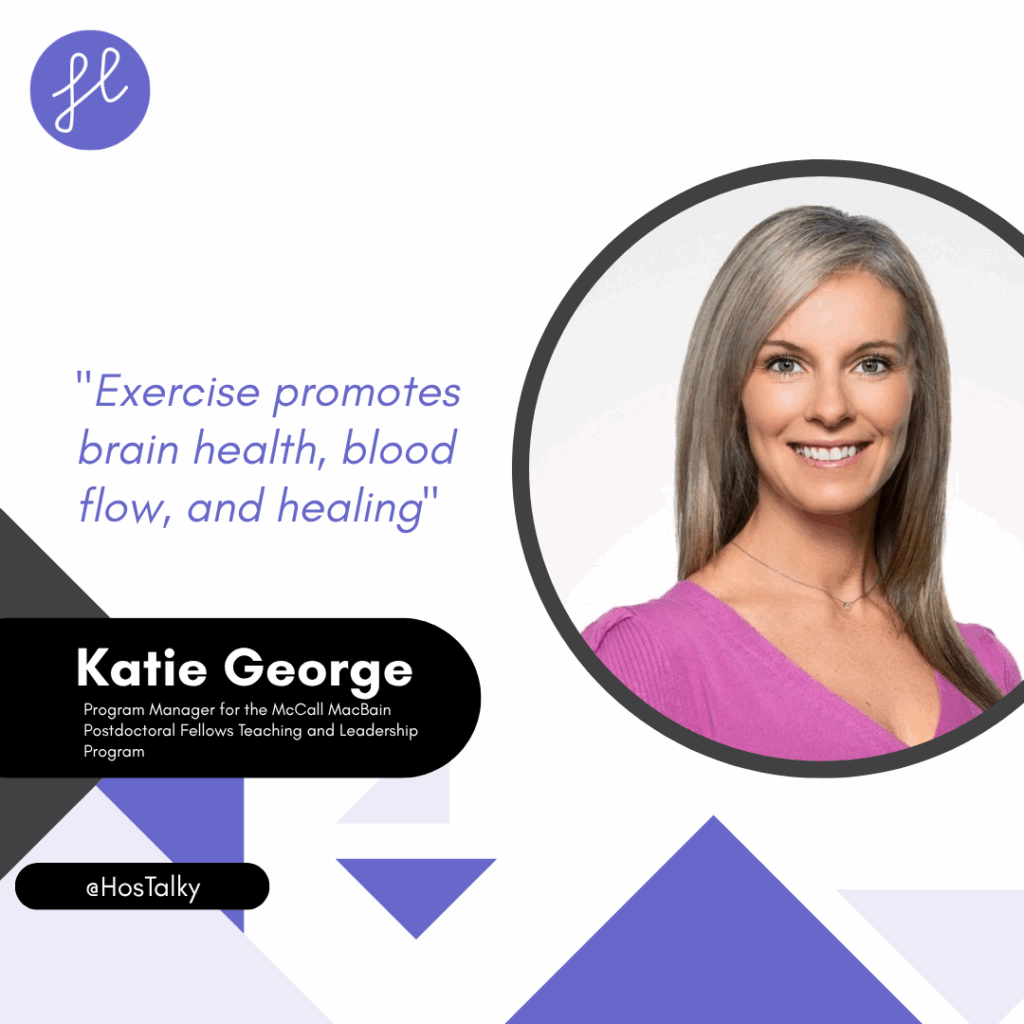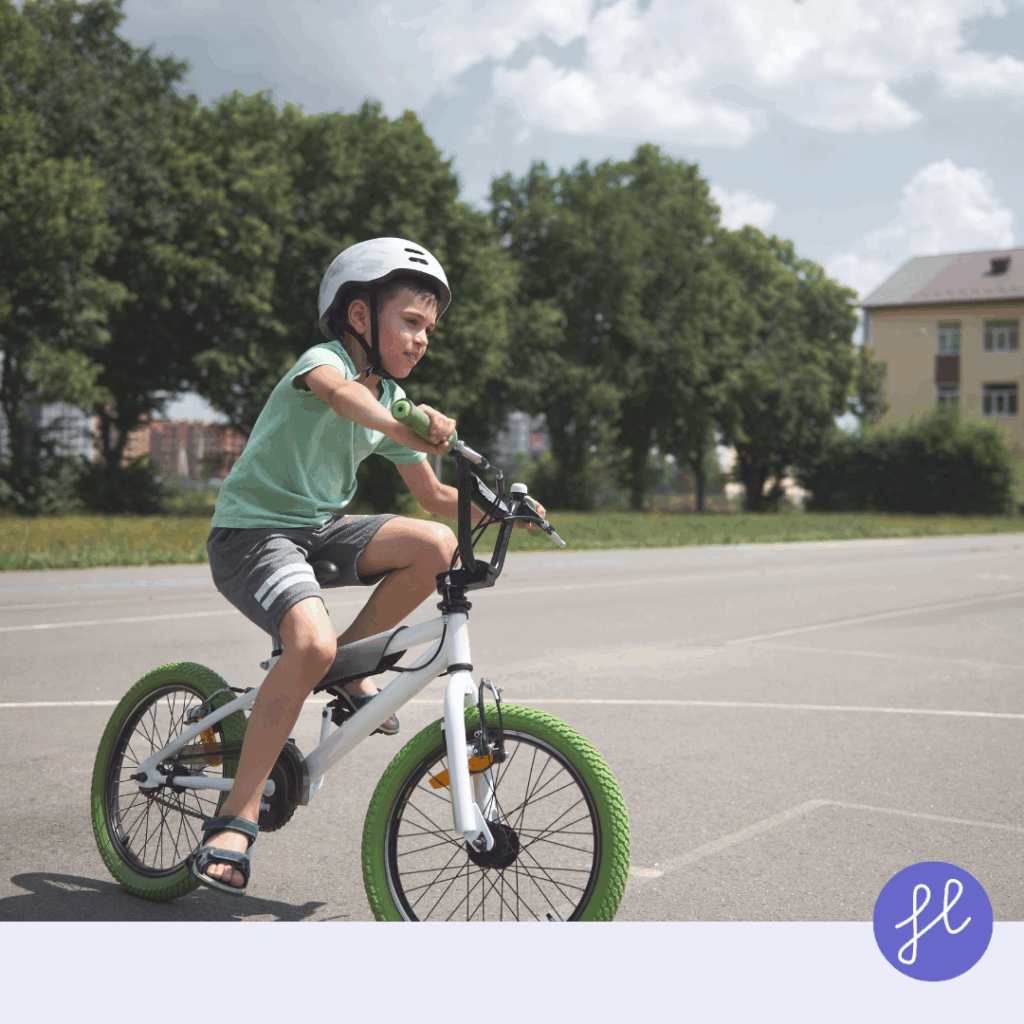Katie George, the Program Manager for the McCall MacBain Postdoctoral Fellows Teaching and Leadership Program, brings a wealth of knowledge from her background as both a licensed rehabilitation specialist and a professor.
Her unique blend of clinical practice and education makes her a valuable voice on concussion awareness and recovery.
In this interview, conducted by Dhivya Bhaskaran, Katie shares her expert insights into how concussions affect daily life, the critical role of support systems in recovery, and how to reduce concussion risks for children and teens.
Post-Concussion Symptoms: Fatigue & Daily Impact
Concussions can have a significant impact on a person’s daily life, and the effects are often overlooked. Katie George emphasizes that fatigue is one of the most common, yet underappreciated, consequences of a concussion.
While past recovery recommendations often included resting in a dark, quiet room, recent research has shown that a more active approach to recovery is beneficial.

“Exercise promotes brain health, blood flow, and healing,” she explains. However, it’s crucial for those recovering to pace themselves and not overexert their bodies.
Many individuals become frustrated when they’re unable to perform at their usual level. This makes it crucial to listen to the body’s signals and rest when needed. Acceptable light exercise includes activities such as light walking or stationary cycling, and should never worsen symptoms.
Behavioral Changes and Recovery Pacing
Katie highlights the role of social and behavioral changes in complicating concussion recovery. People recovering from a concussion may either push themselves too hard or not engage enough in daily activities.
For instance, athletes may feel the pressure to return to their sport too quickly, which can worsen symptoms. Clinicians must be vigilant in educating patients about the risks of overexertion and the importance of gradual recovery.
Katie stresses that,
“Symptoms are usually worse in the beginning and taper off over time.”
However, pushing too hard too soon can lead to a resurgence of symptoms. The key, she says, is to listen to your body and seek medical advice if symptoms persist or worsen.
The Crucial Role of Family and Support Systems in Recovery
A strong support system can make all the difference in a person’s recovery. Katie explains that while not everyone is fortunate enough to have a reliable support system, those who do have access to one should leverage it.
Family members and caregivers must be aware of the physical and emotional changes that occur during recovery so they can respond with patience and understanding.
“Fatigue, especially cognitive fatigue, can be just as exhausting as physical exertion,”
She points out. Having a supportive network that understands the nuances of concussion recovery can help individuals manage their symptoms and stay on track.
Concussion Risk Reduction for Children and Teens
For parents, coaches, and teachers, creating a safe environment to reduce the risk of concussion is essential. Katie emphasizes the importance of concussion training for all individuals involved in youth sports.
Coaches, in particular, should be well-versed in recognizing the signs of a concussion and following proper protocols when an injury occurs. If a child sustains a head injury, they should not be rushed back into play until it is safe to do so.

Katie is also a strong advocate for helmet use. Whether children are playing sports, riding bikes, or participating in other activities where head injury is possible, helmets can significantly reduce the risk of concussion. Parents should model this behavior and encourage their children to wear helmets consistently.
Katie also advises parents to closely monitor any post-head injury symptoms, such as changes in speech, processing abilities, or eye focus, and seek medical attention if any differences are observed.
Recommended Resources for Concussion Training
For those looking to learn more about concussion prevention and care, Katie George recommends these trusted, evidence-based resources:
- CDC Heads Up Program
- Sport Connect for Coaches and Athletes
- Parachute Canada – Concussion Guide for Parents and Caregivers
These programs are excellent starting points for anyone seeking to educate themselves on concussion protocols and ensure they are taking the right steps to protect individuals from the long-term effects of head injuries.
Conclusion
Concussion recovery is a multifaceted process that requires careful attention to both physical and behavioral symptoms. Katie George’s expert insights underscore the importance of listening to one’s body, having a supportive network, and taking preventive measures, especially for children and teens.
Ready to connect with more industry experts like Katie George?
Follow HosTalky on LinkedIn for continuous insights into leadership, education, and professional development.